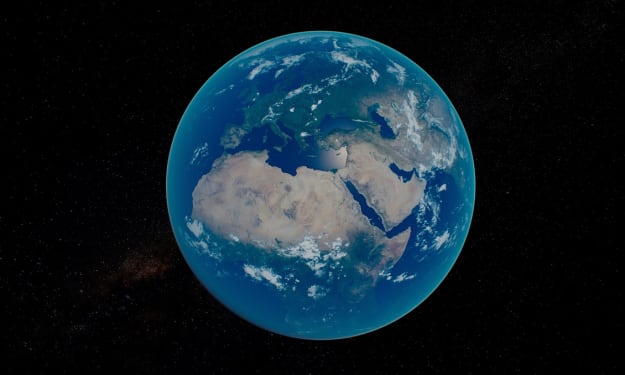Time Travel: Fact or Fiction
Meeting A Time Traveler

Introduction
Time travel has always been a fascinating concept in science fiction. The idea of traveling to the past or the future has captured the imaginations of people around the world. But is time travel really possible? And if it is, why haven't we met any time travelers yet? In this article, we will explore the concept of time travel, the theories behind it, and the possibilities and limitations of traveling through time.
The Theory of Relativity
To understand the possibility of time travel, we need to delve into the theory of relativity, proposed by Albert Einstein. According to Einstein, space and time are interconnected, forming a space-time continuum. Gravity, a curve in space-time, can potentially bend time as well as space. However, to notice any significant changes in the movement of time, we would need an incredibly massive object like a black hole.
Traveling to the Future
While traveling to the past may be more challenging, traveling to the future is theoretically possible. As stated by Einstein's theory of relativity, the closer we get to the speed of light, the slower time passes for us. For example, if we were to travel on a train moving at 99% of the speed of light for a year, 223 years would have passed on Earth. This phenomenon allows us to become time travelers into the future.
John Titor: The Alleged Time Traveler
In 1998, a man named John Titor claimed to be a time traveler from the year 2034. He shared detailed information about his time-traveling device, called the C 204. According to Titor, this device manipulated gravity using micro singularities and had gravity sensors to fix the machine and the time traveler in a specific place in space. Titor's machine was installed in a car, similar to the iconic time-traveling DeLorean from "Back to the Future." However, Titor's machine could only transport him within a 60-year time range from his original timeline.
The Challenges of Proving Time Travel
Proving the existence of time travel is no easy task. Time travelers could potentially make predictions about the future, showcase futuristic technology, or even undergo genetic testing to support their claims. However, even if someone were to demonstrate these abilities, skepticism would still persist. The precision and accuracy of time travel remain elusive, making it difficult to provide concrete evidence.
Stephen Hawking's Time Travel Party
In 2009, the renowned physicist Stephen Hawking hosted a party specifically for time travelers. The catch? Hawking only sent out the invitations after the party had already taken place. His theory was that if time travel were possible, future time travelers would attend the party. Unfortunately, no one showed up. However, the absence of time travelers at Hawking's party does not necessarily invalidate the possibility of time travel. It is still conceivable that time travelers from the future may learn to utilize wormholes or bridges in space-time.
Wormholes: Theoretical Gateways to the Past
Wormholes, if they exist, could potentially serve as gateways to the past. The theory of general relativity predicts the existence of these microscopic tunnels in space-time. However, they collapse too quickly for a human traveler to pass through. Despite this limitation, it is possible that future advancements in technology or our understanding of physics may allow us to harness the power of wormholes for time travel.
The Rules and Limitations of Time Travel
If time travel were possible, it is likely that there would be rules and limitations in place to prevent catastrophic changes to the timeline. Time travelers might be prohibited from traveling to the past to avoid altering the course of history. Additionally, the spread of diseases from the future to the past could be a significant concern, leading to strict regulations and precautions for time travelers. The highly classified nature of time travel information may also limit its accessibility to only a select few individuals.
The Paradoxes of Time Travel
One of the most intriguing aspects of time travel is the possibility of encountering paradoxes. The grandfather paradox, for example, suggests that if someone were to travel back in time and kill their own grandfather before they had children, it would create a paradox. This paradox raises questions about the consistency and stability of the timeline. The resolution of such paradoxes remains a subject of debate and speculation among scientists and philosophers.
Time Travel in Our Lifetime
While time travel to the past may still be a distant possibility, there are instances of time dilation in our current lifetime. Astronauts aboard the International Space Station, traveling at a speed of eight kilometers per second, experience time passing slightly slower than those on Earth. Although the difference may be minuscule, it demonstrates the impact of speed on the perception of time.
Conclusion
In conclusion, the concept of time travel continues to captivate our imaginations. While the possibility of time travel is yet to be proven definitively, the theories of relativity and the existence of wormholes offer glimpses into the potential for traversing through time. The challenges of providing concrete evidence, the limitations imposed by the laws of physics, and the paradoxes associated with time travel contribute to the ongoing fascination and mystery surrounding this concept. As we continue to explore the frontiers of science and expand our understanding of the universe, the possibility of time travel may one day become a reality.






Comments
There are no comments for this story
Be the first to respond and start the conversation.